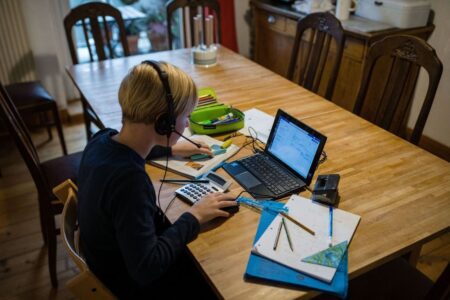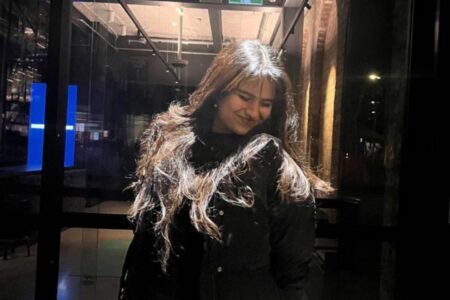
If you’re Asian, you’ve probably heard from your parents: “I know what’s best for you,” or “Be a doctor, lawyer, or engineer if you want to earn good money.”
Passion can wait but financial stability cannot.
This was the reality for Shafeeq Ahmed Syed Ali from Kerala, India as well. He wanted to study either English or Maths, but his parents had only one path in mind for him: engineering.
Instead of resisting, Ali decided to work with it. “I literally Googled ‘best paying engineering job’ and ‘engineering fields with the best job prospects,’” he says.
If he was going to study something he wasn’t interested in, it should at least pay well.
His research led to petroleum engineering and its subset, chemical engineering.
His parents’ next concern was location; they wanted him to study somewhere nearby. After considering his options, Ali chose Monash University Malaysia.
“I won’t say studying chemical engineering at Monash Malaysia was my personal choice at first,” he says, “but looking back, I think it was one of the best decisions I’ve made, considering where I am today.”

Ali with his supervisor Dr. Saman during a poster presentation at Monash, where he studied his chemical engineering degrees. Source: Shafeeq Ahmed Syed Ali
Studying in India vs studying abroad: What’s the difference?
For Ali, growing up in India meant navigating one of the toughest education systems in the world. The pressure began early for many.
“There’s the Joint Entrance Examination (JEE) Advanced exam, for example,” he says. “The competition is so intense that every year the standards are raised even higher.”
With millions vying for limited spots, success rates are low. Even after passing the exam, candidates have to go through multiple rounds of interviews.
Inside the classroom, everything is theory-based. Even the final exams are brutal. Students have to answer 10 to 30 questions in just two or three hours, and they’re expected to memorise all the formulas and write out their derivations.
Ali’s move to Malaysia for his chemical engineering degree meant he had a very different experience. He found that his undergraduate curriculum had a more practical approach.
“At Monash Malaysia, for example, the final exam only has four questions. And you get an equation booklet with it. They’re not testing your memory — they want to see how you use the equations,” he explains.
But it wasn’t just academics that made an impact. Studying chemical engineering abroad was also great for Ali because he got to get involved in many clubs and societies.
He was the International Student Officer for Monash University International Students Service, Head of Sponsorship for the Monash IChemE Student Chapter, and President of the Monash University Islamic Society.
“These roles really helped me grow in ways I wouldn’t have in India,” he says. “But it wasn’t because of the culture, I just had more time and freedom to explore.”
He enjoyed his study abroad so much that he decided to do his PhD with Monash too.

Ali’s study abroad wasn’t limited to chemical engineering; he also honed leadership and teamwork skills by organising events like the Monash University Malaysia (MUM) Graduate Research Week. Source: Shafeeq Ahmed Syed Ali
What’s chemical engineering research in Malaysia and Australia like?
Ali applied for the Global Excellence and Mobility Scholarship (GEMS) programme, one of Monash Malaysia’s top scholarships for postgraduate research.
Students receive guidance from supervisors in both Malaysia and Australia throughout their research, with one year spent at Monash’s Clayton campus.
In Melbourne, Ali noticed a difference in research culture between the two countries.
In Malaysia, his priority was making sure his research was innovative and sustainable. He thought that would be enough to get through the PhD.
But in Melbourne, his focus changed. The question wasn’t just, “Is it novel?” or “Is it sustainable?”
“Most professors in Melbourne work closely with industry partners, so it’s all about making sure what you’re working on is relevant to what’s happening outside the lab.”
He also noticed a difference in the resources available. In Melbourne, it’s common for professors to have their own labs, whereas in Malaysia, everyone had to share.

Among the many highlights of Ali’s chemical engineering journey was winning first place at the National Chemical Engineering Symposium (NACES) in 2019 with his team. Source: Shafeeq Ahmed Syed Ali
A childhood memory turned lifelong mission
Ali is conducting research on packaging plastic waste management. It looks into two key areas: how plastic waste is managed and how it is pretreated.
A big part of his work focuses on deinking. It is the process of removing ink and colours from printed plastic bags. By doing this, the bags can be recycled more effectively.
But Ali also realised that even the best pretreatment won’t work if the waste isn’t managed properly from the start.
“If you mix everything together, it creates more problems,” he says. That’s why he’s exploring better management practices and policies that can ensure better recycling outcomes.
However, Ali actually never set out to be a researcher. His journey into research traces back to memories from childhood.
His grandfather once ran a plastic business, selling carry bags and other materials.
In Kerala, milk came in small pouches. His family would buy two or three a day and store the empty pouches until they became a huge pile before passing them on to a scrap recycler.
As a young boy, Ali imagined turning those packets into craft projects. Though he never followed through, the idea never left him.
Years later, while browsing Monash’s website, he spotted a scholarship opportunity related to plastic waste management.
“That’s when it all came back,” he says. “I wanted to do something with it back then but couldn’t. So when I finally got the opportunity, I decided to take that idea and implement it.”

When he wasn’t buried in his chemical engineering coursework, Ali kept himself busy leading the Monash University Islamic Society. Source: Shafeeq Ahmed Syed Ali
How do you become a top 1% chemical engineer?
Getting into sustainability was a stroke of luck for Ali. These days, interest in it is surging, especially among engineers.
Nations are setting tougher environmental regulations that push businesses to report on their environmental footprint.
And with the built environment responsible for 39% of global carbon emissions, engineers are under pressure to find greener solutions.
Before his bachelor’s degree, Ali admits he didn’t care much about sustainability. After all, it used to be a very niche subject.
Only half of one entire unit was dedicated to lifecycle assessment at Monash. Meanwhile, in Kerala, it was just a small section in one chapter of his brother’s engineering programme.
But his interest in sustainability grew over time, thanks to group projects at Monash.
He worked with the same team for four years. Because he was always busy running between classes and extracurriculars, they were worried he couldn’t handle the tough calculations or literature-heavy sections.
So, they gave him the sustainability analysis parts instead. Funny enough, he excelled at them.
“Before long, I became the go-to person for the sustainability section, he says.
That experience gave Ali something extra to stand out in the job market. He realised that not many students were paying attention to sustainability.
Most were busy with the usual engineering topics, while the environmental side was treated as an afterthought. Ali chose to explore it further.
Fast forward to today, things have changed. More and more universities are incorporating sustainability into all their engineering programmes.
At Monash, for example, every student has to submit a sustainability declaration in their projects.
“Engineering is where most of the pollution comes from,” Ali points out. “That’s why universities have to make sure future engineers know what they’re doing.”










